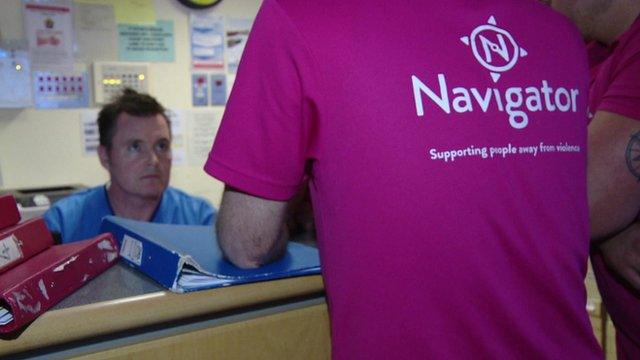Knife crime: How A&E project helps to break the cycle of violence
- Published
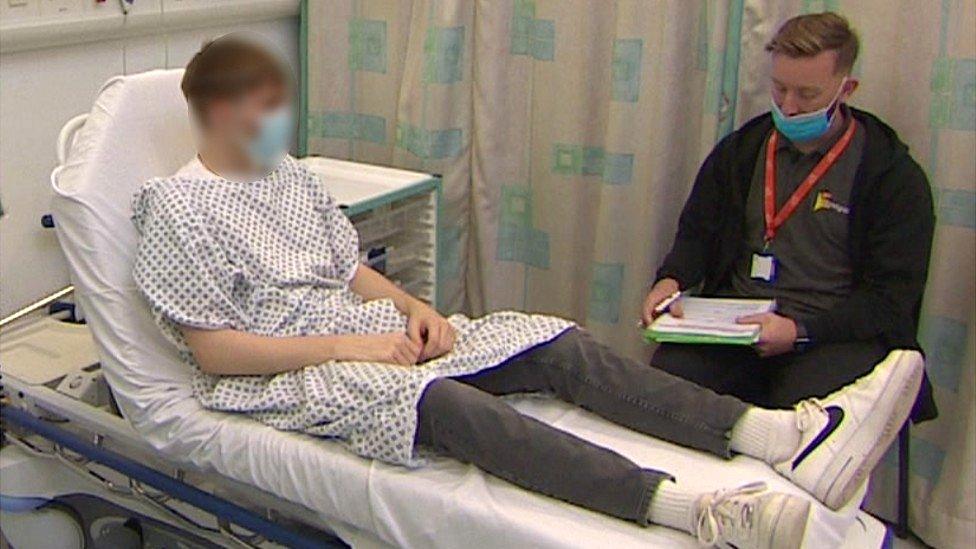
The project sees youth workers embedded in hospital emergency departments
A team of dedicated youth workers is on standby, ready to intervene when the latest young victim of violent crime is brought into A&E.
They want to help 10 to 25-year-olds break free from the cycle of violence, and prevent tit-for-tat attacks further blighting their communities.
The GM Navigator project, launched almost six months ago within four Greater Manchester hospitals, focuses on areas which have seen some of the highest levels of youth violence.
It has so far helped 125 young people - more than a quarter of whom had suffered knife wounds.
Matt Dawson, a junior doctor at Manchester Royal Infirmary, has witnessed the devastation wreaked by knife crime.
"It can be quite shocking to see violence at such a level and especially in young people," he told BBC North West Tonight.
"They might attend at one point with what one could consider a minor injury, but the likelihood they might come back with a very serious injury if we don't step in is quite high."
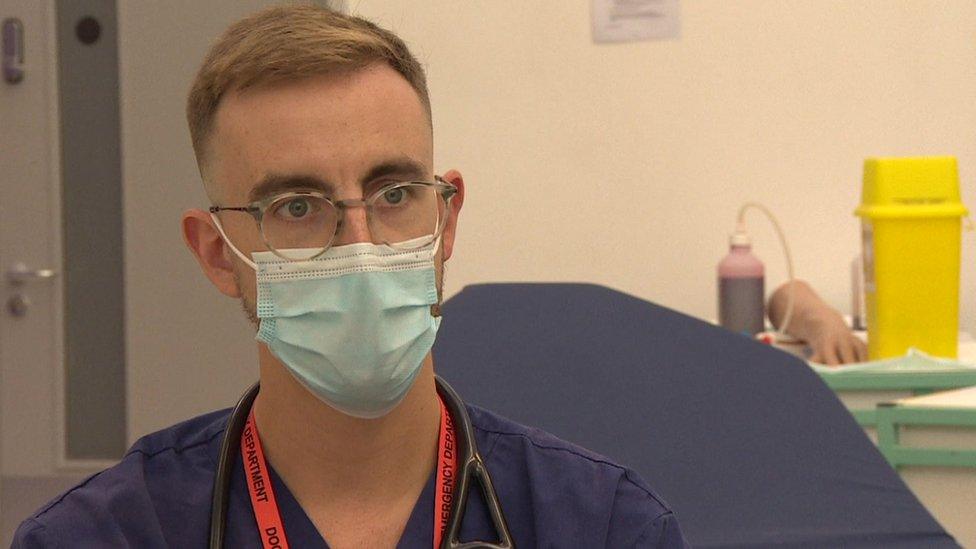
Dr Matt Dawson said it had been "shocking" to see the level of violence among young people
The 12-month pilot project, which is being delivered by the charity Oasis, was launched in May at Royal Bolton Hospital, Salford Royal Hospital, Manchester Royal Infirmary and Royal Manchester Children's Hospital.
It sees a team of hospital-based youth workers support young people for up to six weeks.
"No matter how hard we try as clinical staff to be empathetic and understanding, there is a natural kind of barrier because you represent authority of sort," said Dr Dawson.
"What the 'navigators' have the ability to do is get involved in those people's lives in a meaningful way over a much longer period of time than in the four hours I see them."
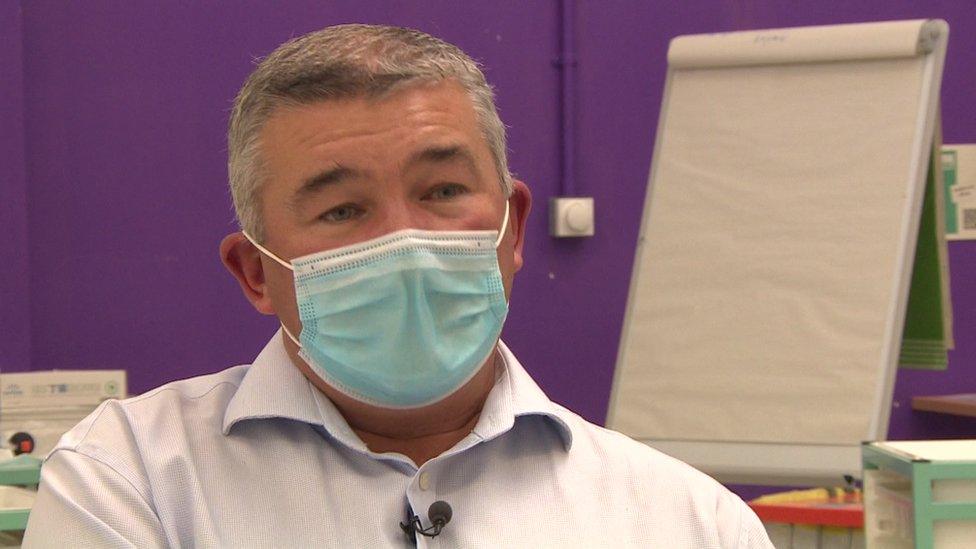
Dave Gilbride said one of the main benefits has been the positive outcomes for young people
The project was commissioned by the Greater Manchester Violence Reduction Unit (GMVRU), which brings together Greater Manchester Police, Greater Manchester Combined Authority, the National Probation Service, health and education professionals, youth justice and local authorities to address the underlying causes of violence and work together with communities to prevent it.
GMVRU victim lead Dave Gilbride said the scheme was definitely working.
"It absolutely does cut the number of repeat victims coming into hospital, he said.
"There is a benefit to the NHS not having to treat those injuries, but more importantly for me, it's about a positive outcome for that young person."
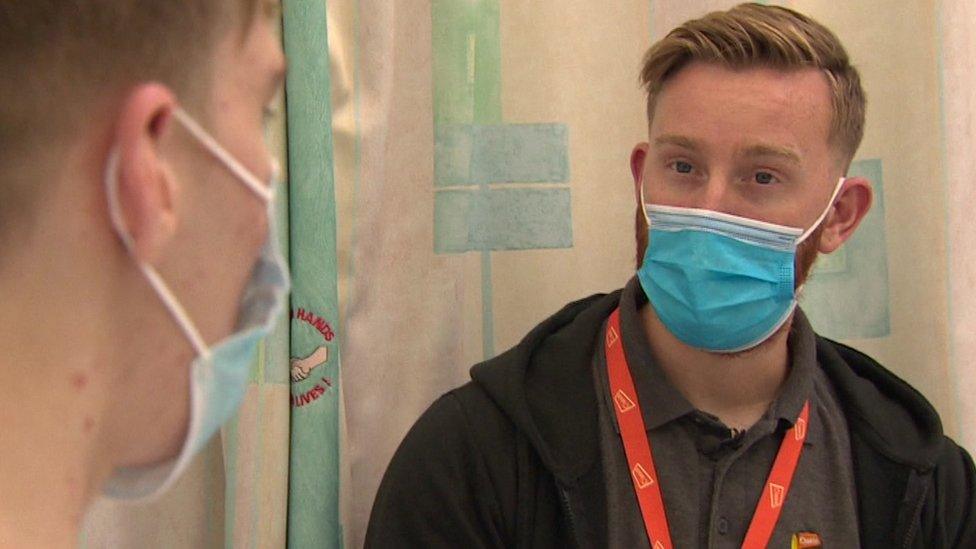
Youth worker Chris Hughes is based at Manchester Royal Infirmary
Chris Hughes, who is part of the Navigator team, said the project was about guiding young people along a different path in life.
"It can be a school fight that we don't want to escalate that we're worried about," he said.
"It can be knife crime or we've had a gunshot wound. We just get to know what the situation is like, what home life might be like, school life might be like.
"That's my job then to figure out why they are in that situation, what has led them to this point.
"And then guide them into the great community work that's already going."
BBC North West Tonight's in-depth look at knife crime - and how it is being tackled - will be shown at 18:30 BST on Wednesday 6 October, or you can catch up on the BBC iPlayer afterwards.

Why not follow BBC North West on Facebook, external, Twitter, external and Instagram, external? You can also send story ideas to northwest.newsonline@bbc.co.uk, external
Related topics
- Published6 October 2021
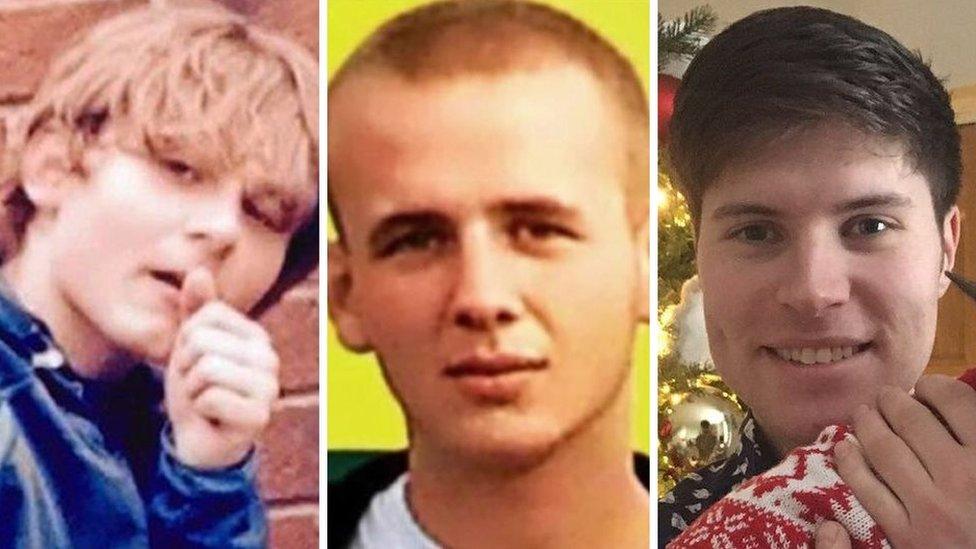
- Published27 October 2017
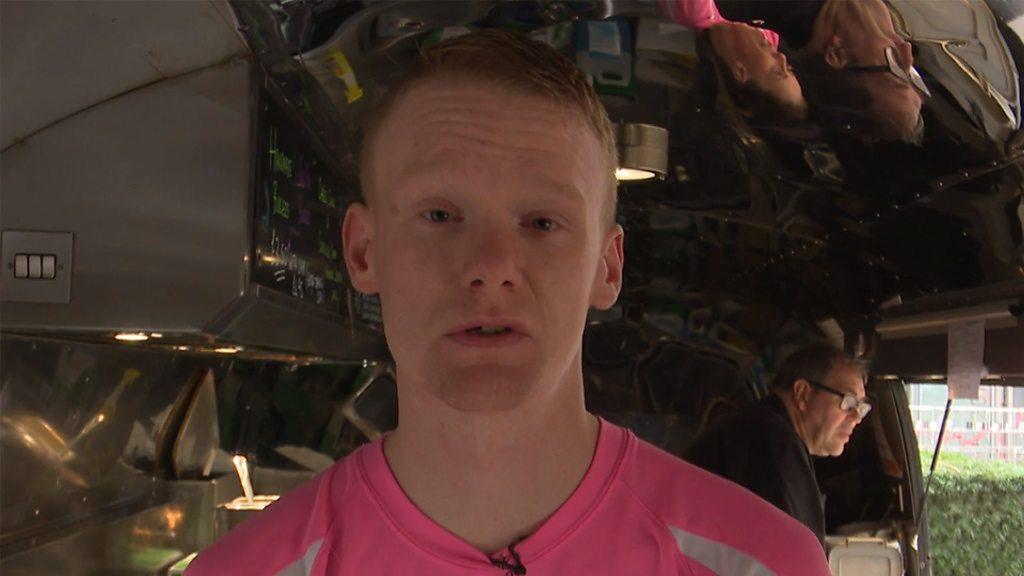
- Published27 October 2017
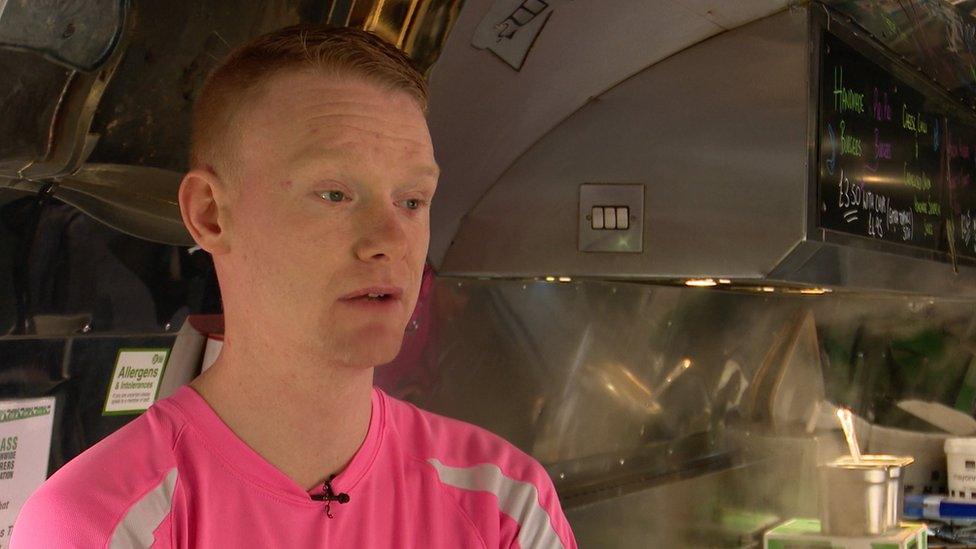
- Published30 March 2016
